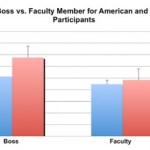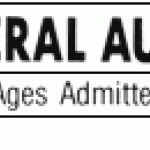Academia
My talk at the AAAS meeting was part of a symposium on the results from the 2008 Trends in International Math and Science Survey (TIMSS) Advanced. This is an international test on math and physics given to high-school students in nine different countries (Armenia, Iran, Italy, Lebanon, Netherlands, Norway, Russia, Slovenia, Sweden), and this is part of an ongoing survey, with a previous round given in 1995 or 1998. As part of the preparation for the talk, I got all the released items from TIMSS 2008, including score breakdowns and demographic information. My own analysis of this was fairly…
The authors over at In the Library with the Lead Pipe have posted about my recent manifesto on Stealth Librarianship.
There's some pretty healthy debate, agreement, disagreement, qualification, additions and subtractions going on there, so please do check it out: Lead Pipe Debates the Stealth Librarianship Manifesto.
Some excerpts:
What Dupuis fails to mention here is that many academic librarians MUST publish in traditional, peer-reviewed library publications while striving to attain tenure. I am not personally in a tenure-track position, so I have the liberty of not fretting over where I…
Since I had to have the slides for my AAAS talk ready well in advance, I might as well let you look at them more or less as I give the talk. So, courtesy of SlideShare, here's the presentation I'll be giving right around the time this is scheduled to post:
What Physics Knowledge Is Assessed in TIMSS Advanced 2008?
View more presentations from Chad Orzel.
the question I was asked to talk about is whether the released questions from the Trends in International Mathematics and Science Survey test from 2008 do a reasonable job of covering what we want physics students to know coming in. The…
We had an education talk yesterday afternoon, because today's colloquium speaker, Ann Martin from Cornell, has strong interests in that and wanted to talk to people about it. A lot of the discussion had to do with teaching students to write, and getting them to accept feedback. Martin spoke very positively of a writing-intensive introductory course she did about cosmology, and said she saw significant improvement in both students' understanding of key concepts and the quality of their written work over the semester.
Those of us who teach a lot of introductory physics classes with labs all…
"At home, a young man should be dutiful towards his parents; going outside, he should be respectful towards his elders." -Confucius (Chinese philosopher, 551-479 BCE)
"Your real boss is the one who walks under your hat." -Napoleon Hill (American author, 1883-1970)
Those two quotations reflect a cultural difference in how people construct their own conceptions of who they are and how they interact with others. That the particular culture an individual is raised in helps to determine the way they understand the self is clear. Western cultures, such as in America or the UK, tend to focus on…
McMaster University colleague Andrew Colgoni (Twitter) has taken my Stealth Librarian Manifesto and tamed it a little bit and come up with his own version, which is here.
I like what Andrew has to say in a post titled, I prefer Ninja Librarianship, myself:
[T]here's much that can be learned from discovering where your faculty are reading/going and finding them there. This can be as simple as finding on-campus conferences that draw a broad faculty audience, and visit that. Here at McMaster, the Centre for Leadership in Learning annually hosts a teaching and learning conference, which draws…
Part 2 of the n00b Science Blogging 101 series concerns the big questions of blogging: audience, purpose, and so on. You can find part 1 here, in which I discussed my own experiences with blogging to provide adequate context for this and the remaining posts in the series.
What audience do you have in mind when you write and why? Are you writing to people already interested in science, or do you also want to get people interested in science?
This is really two questions. The first concerns who reads this blog, and the second concerns who I wrote this blog for, and the second question is far…
The always fraught question of student course evaluations has come up again on campus. In discussions, the correlation between "expected grade" and "overall evaluation" has once again been noted-- that is, students who report expecting a higher grade are more likely to give a good overall score to their professors than students who expect a lower grade. Which, of course, does not indicate a causal relationship between those two things, but that doesn't stop us from spinning hypotheses. Thus, a poll question:
There is a positive correlation between the expected grade reported and the…
Earlier today, I had the pleasure of speaking via Skype with Dan Simons's graduate-level science writing class. We talked about the ins and outs of academic blogging, and the nature and ecosystem of science communication online, and the students asked some terrific questions.
I had asked Dan to ask his students to compile some questions in advance, so that I might at least pretend to be prepared, and the questions they sent were so good, that I've decided to commit my answers to the relative permanence of the sciblogosphere. (Also, there was good feedback to a similar post that I wrote…
Barring a major disaster, I am scheduled to teach one of our Scholars Research Seminar classes next winter. I've been kicking the idea for this around for a while, with the semi-clever title "A Brief History of Timekeeping." The idea is to talk about the different technologies people have used to mark the passage of time, from Stonehenge down to modern atomic clocks. There's a lot of good science in there, from astronomy (sundials and the like) to basic mechanics (pendulums and so on) to quantum physics (atomic clocks) and even relativity. And there's plenty of room for side trips into other…
The "peer reviewers get worse" item in this morning's Links Dump drew an immediate comment elsewhere to the effect of "of course they do, because they start pawning reviews off on their students. This one was a surprise to me, so here's a quick poll to see if my subfield of physics is really that much more collegial and ethical than the rest of science:
Handing a referee report for a grant or paper off to be written by a grad student or post-doc is:customer surveys
Refereeing takes place via classical communications channels, so you may only choose one option.
My experience is that while I…
Anyone know of archeologists reading the tea leaves on the implications for Zahi Hawass being made a cabinet minister in Egypt? Hawass is the telegenic spokesman for Egypt's rich trove of antiquities, regularly featuring in TV shows about mummies and pyramids, and undoubtedly helping keep tourists flowing to Egypt (tourism is the major national industry).
In the political shakeup over the weekend, Mubarak used his nominal political power to create a new cabinet position for Hawass: Minister of Antiquities.
On one hand, I'd think archaeologists would be glad to see their field getting such…
The women science bloggers conversation is getting so long and elongated, I thought it would be interesting and, I hope, useful to put all the posts in rough chronological order. By rough I mean that I haven't attempted to order the posts within each day of publication. Perhaps I'll take another pass at the list later on for that.
The original list of posts is here.
2011.01.18. Woman science bloggers discuss pros and cons of online exposure
2011.01.22.Science Online 2011: Even when we want something, we need to hide it.
2011.01.22. Women science bloggers: Some thoughts (er, sorry, felt I…
Over in locked LiveJournal land, I read a post talking about computer science education, and how it's biased against people who aren't already tech geeks coming into college:
Taking an intro CS course if you don't already know how to program is like taking intro Spanish without ever having taken it in high school - 90% of the people in that class are ahead of you, possibly way ahead of you, on day one, and you're working from the back.
That is a brutal situation to be in, honestly, and it does nobody any favours. The people who don't already know how to program are dealt a crushing blow to…
A few days ago I posted some thoughts on the programming of the recent ScienceOnline 2011 conference and yesterday I posted some thoughts about the more social and fun aspects of the event.
In this post I like to look forward to next year's conference and start thinking about some of the sessions I might like to organize. My very early thoughts are coalescing around undergraduate education around. I have a couple of ideas which I think might be interesting to pursue.
First of all, I'm interested in collaborations around teaching undergrads about the scholarly information landscape. On…
There's been a lot of hand-wringing and finger-pointing in academic circles this week over the release of a book claiming college students are "Academically Adrift" (see also the follow-up story here). The headline findings, as summarized by Inside Higher Ed are:
* 45 percent of students "did not demonstrate any significant improvement in learning" during the first two years of college.
* 36 percent of students "did not demonstrate any significant improvement in learning" over four years of college.
* Those students who do show improvements tend to show only modest improvements.…
I gave a talk today on blogs as a tool for science communication (basically the same as this one, with a few minor updates), and got asked "Aren't the people who read science blogs mostly scientists already?" Which reminded me that it's been a while since I did a "Who are you people?" post.
So, if you've got a minute, leave a comment to this post, telling me something about who you are and how you got here. And if you want to throw in something about what you particularly like to read, or would like to see more of here, that sort of feedback is always helpful.
Thanks in advance.
I'm giving a talk at the AAAS meeting next month on international physics tests, and they have asked me to provide information that they will duplicate and distribute to the media. Items requested include:
-- A one-paragraph biographical sketch (not a C.V.)
-- A lay-language summary of your talk, beyond the abstract.
-- The full text of your talk or a related (ideally recent) technical
paper, either as a Word file or a PDF. PowerPoint presentations are
acceptable, but a full text will better serve reporters' needs.
The first two are no big deal, but the third is kind of weird. I don't…
Yeah, I'm talking about you, #scio11. The conference that still has significant twitter traffic three days after it's over. I've been to conferences that don't have that kind of traffic while they're happening. In fact, that would be pretty well every other conference.
Every edition of ScienceOnline seems to have a different virtual theme for me and this one seemed to somehow circle back to the blogging focus on earlier editions of the conference. Of course, the program is so diverse and the company so stimulating, that different people will follow different conference paths and perhaps…
We did a lab yesterday that asked students to measure the speed of a ball leaving a spring-loaded launcher in a few different ways. this is a great way to talk about the difference between systematic and random errors and how those are dealt with. As a way of starting that discussion, I asked the students to calculate the speeds last night, and then enter their values in an Excel sheet when they came to class this morning. Since generating a sensible plot in Excel 2007 is such a gigantic pain in the ass, I used an older data set to set up a template, and made a graph of the quantities we were…


